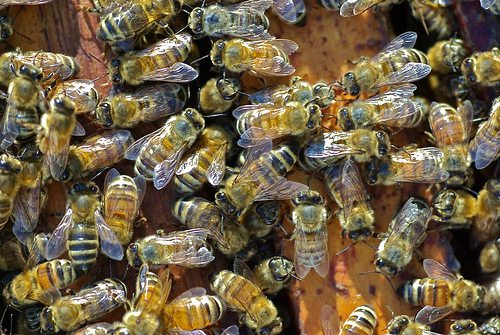

Environment
Study reveals ‘widespread risk’ of disease to wild bees
A new study has discovered that a network of viruses that were previously associated with managed honeybees are spreading to wild bee populations, potentially posing “widespread risk” to the wild population.
The study, which has been published in the Journal of Animal Ecology, notes that the infectious interconnected diseases are threatening several species of bumblebee and the managed honeybee.
Wild bee populations are facing other challenges, including pesticides use and habitat loss, resulting in populations falling across the UK. Increase in diseases among wild populations could have a huge impact on bees and the ecosystem.
Professor Mark Brown, from the School of Biological Sciences at Royal Holloway, University of London, said, “Our results confirm a recent review of potential threats to pollinators, indicating that so-called honey bee viruses are widespread in wild bees.
“It is imperative that we take the next step and identify how these viruses are transmitted among honeybees and wild bees, so that we can manage both to reduce the risk of disease.”
The research identified five viruses named for their effects on honeybees – black queen cell virus, deformed wing virus, acute bee paralysis virus, slowbee paralysis virus and sacbrood virus – from both wild and managed bees at 26 sites across the UK.
It is estimated that insects, including bees, provide pollinating services worth $200 billion (£131bn) worldwide. Falling numbers amongst pollinators will have a profound affect on human food supplies and ecosystems.
Professor Robert Paxton, from Queen’s University, Belfast, commented, “Our previous research suggested that a key virus of the honeybee – deformed wing virus – spills over to infect bumble bees, probably via contact at flowers. We now find that other viruses may be doing the same. Yet our new findings also highlight just how little we know of bee parasites and the role they play in the decline of pollinators.”
Despite falling populations, a separate study found that bees and other pollinators could thrive in an urban environment, suggesting that towns and cities can be adapted to improve their values to pollinators.
Photo: forevertrusting via Flickr
Further reading:
Great British Bee Count: allotments better than parks for bees
Pollen collected by European bees contaminated with pesticides
Bees and pollinators ‘thrive’ in urban environment
Banned pesticide interferes with bees’ ability to gather food


 Environment12 months ago
Environment12 months agoAre Polymer Banknotes: an Eco-Friendly Trend or a Groundswell?

 Features11 months ago
Features11 months agoEco-Friendly Cryptocurrencies: Sustainable Investment Choices

 Features12 months ago
Features12 months agoEco-Friendly Crypto Traders Must Find the Right Exchange

 Energy11 months ago
Energy11 months agoThe Growing Role of Solar Panels in Ireland’s Energy Future






























